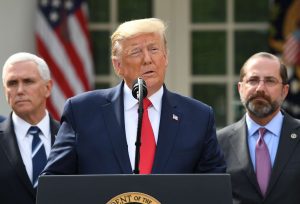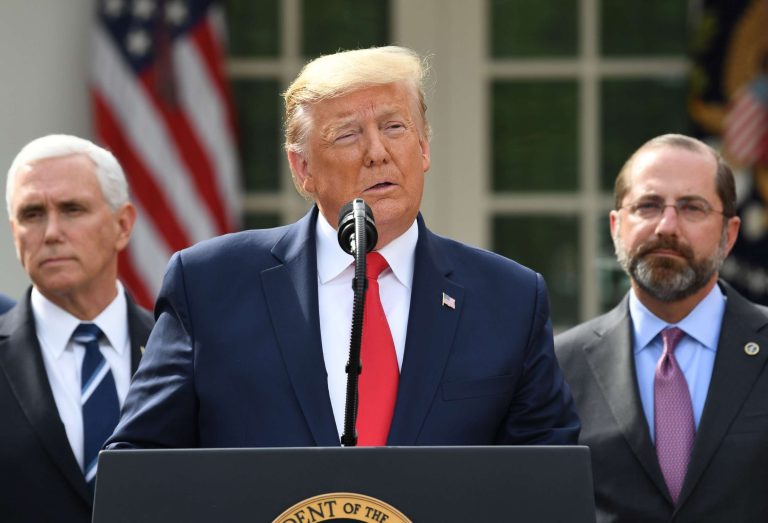Criminal Referrals Filed Following Foreign Donation Allegations
A prominent campaign finance watchdog group has filed two criminal referrals against New York City Mayor-elect Zohran Mamdani, alleging that his campaign accepted illegal contributions from foreign donors during his mayoral run.
The Coolidge Reagan Foundation, a conservative nonprofit focused on election integrity, announced Tuesday that it submitted formal complaints to both the U.S. Department of Justice’s Criminal Division and the Manhattan District Attorney’s Office. The group claims Mamdani’s campaign violated the Federal Election Campaign Act (FECA) and provisions of New York State’s election law.
The move follows a report earlier this month alleging that Mamdani’s campaign received roughly $13,000 in contributions from at least 170 individuals who reside outside the United States — including one reportedly from his mother-in-law in Dubai.
“These are not isolated incidents or clerical errors,” said Dan Backer, president of the Coolidge Reagan Foundation and a nationally recognized campaign finance attorney. “This was a sustained pattern of foreign money flowing into a New York City mayoral race, which is a clear violation of both federal law and New York City campaign finance rules.”
Allegations of Systemic Violations
In its complaint, the foundation asserts that Mamdani’s campaign exhibited a “systematic failure to comply” with basic fundraising regulations, even after being notified that donations from foreign nationals are prohibited.
According to the group, the campaign “was on notice for months” about the questionable transactions but “did nothing meaningful to stop it.” The referrals urge both the DOJ and Manhattan District Attorney Alvin Bragg to investigate whether any criminal conduct occurred and, if warranted, pursue charges.
The Federal Election Campaign Act explicitly bars any U.S. campaign from “accepting or receiving” contributions from foreign nationals. The law applies to federal, state, and local elections alike.
Violations can carry steep civil penalties and, in cases where intent is proven, potential jail time.
“The law is crystal clear that foreign nationals may not participate in American elections, and that includes making contributions,” Backer said in his statement. “Yet Mamdani’s campaign repeatedly accepted donations from individuals abroad, some even tied to regions and individuals openly sympathetic to hostile actors. Whether through negligence or intent, this conduct undermines the integrity of the democratic process.”
Campaign Pushes Back on Claims
Mamdani’s campaign has denied any wrongdoing, maintaining that it is reviewing the issue and cooperating fully with authorities. A campaign spokesperson said the team had already refunded a significant portion of questionable contributions.
Records show the campaign returned about $9,000 in donations after identifying payments linked to foreign addresses. Officials said an additional $4,000 came from American citizens temporarily residing overseas, which are lawful under federal election law.
“The campaign is committed to transparency and compliance with all election finance rules,” a representative for Mamdani said in a statement. “We are auditing all contributions to ensure full adherence to both city and federal regulations.”
Conflicting Data and Ongoing Refunds
The New York City Campaign Finance Board (CFB), which oversees municipal campaign finance compliance, confirmed that between September 8 and October 20, Mamdani’s campaign refunded nearly $4,000 from 67 foreign-based donors.
Among those was a $2,100 contribution from Ada Diaz Ahmed, an investor based in Dubai. The board also reported that small donations — totaling $130 — from individuals in the United Kingdom, Australia, and Germany were processed as recently as October.
“If the city’s campaign finance portal allowed foreign donations to be processed, that is a system issue the Campaign Finance Board must address, and any improper contributions will be returned,” said Daniel Kurzyna, spokesperson for the CFB.
City officials have acknowledged that automated systems may have failed to flag all foreign transactions, leaving campaigns responsible for manually reviewing donor data.
The Watchdog Group Behind the Referral
The Coolidge Reagan Foundation has previously targeted several high-profile Democrats, including Rep. Alexandria Ocasio-Cortez, Hillary Clinton’s 2016 presidential campaign, and the Democratic National Committee.
Founded as a conservative legal advocacy organization, the group says its mission is to “defend First Amendment rights and promote transparency and accountability in campaign finance.” Its latest actions signal a continuation of its aggressive approach toward candidates it views as violating federal election laws.
While the DOJ and Manhattan DA’s offices have not publicly commented on the referral, legal experts note that such submissions are recommendations — not formal indictments — and may or may not result in an investigation.
Legal Context: What the Law Says
Under federal law, candidates for any elected office in the United States are prohibited from soliciting, accepting, or receiving contributions from foreign nationals. This restriction applies regardless of the size of the donation or the donor’s country of residence.
A “foreign national” is defined as anyone who is not a U.S. citizen or lawful permanent resident. The rule is intended to prevent foreign influence in domestic elections and safeguard the integrity of the political process.
If campaign staff knowingly accept such contributions, the penalties can be significant. The Federal Election Commission (FEC) can impose civil fines, while the Department of Justice may pursue criminal charges in cases involving willful violations.
Political Implications for a New Mayor
The allegations arrive at a politically sensitive moment for Mamdani, who only recently secured his election victory amid a high-profile feud with President Donald Trump.
Mamdani, who campaigned on a platform of progressive reforms and expanded public services, now faces the dual challenge of defending his campaign’s integrity while preparing to assume office.
Political observers say that even if the DOJ or local prosecutors choose not to pursue charges, the controversy could complicate the start of his administration.
“This could become a distraction early in Mamdani’s tenure,” said one New York-based political consultant. “It raises questions about oversight, competence, and how closely his team adhered to the rules during a very public campaign.”
Others caution that the complaint’s origins — from a conservative advocacy group known for targeting left-leaning candidates — mean that the allegations may carry political undertones.
“It’s not unusual for watchdog organizations to file complaints that later prove exaggerated or unsubstantiated,” said a former FEC attorney. “The real question is whether investigators find evidence of intent or repeated negligence.”
Federal and Local Response
As of Wednesday, neither the Department of Justice nor the Manhattan District Attorney’s Office had confirmed whether an investigation would proceed.
A spokesperson for the DOJ declined to comment, citing policy against discussing pending referrals. The Manhattan DA’s office said only that it “receives and reviews all credible allegations of election-related misconduct.”
For now, the outcome remains uncertain. The campaign’s voluntary refunding of contributions could mitigate potential penalties if regulators determine that violations occurred unintentionally.
However, if investigators find evidence of deliberate misconduct, the consequences could include significant fines and, in severe cases, criminal prosecution.
What Comes Next
As Mamdani prepares to take office, his administration faces increasing scrutiny — not only from federal authorities but also from political opponents eager to test his credibility.
Observers note that public trust will hinge on how transparently his team addresses the controversy. Returning improper donations may resolve the legal question, but the political fallout could last longer.
For the moment, the mayor-elect’s message remains consistent: his campaign acted in good faith and intends to fully comply with the law.
But as Washington and New York regulators weigh their next steps, the case underscores a broader issue — how even small lapses in compliance can trigger major political storms in an era of heightened accountability.

James Jenkins is a celebrated Pulitzer Prize-winning author whose work has reshaped the way readers think about social justice and human rights in America. Raised in Atlanta, Georgia, James grew up in a community that instilled in him both resilience and a strong sense of responsibility toward others. After studying political science and creative writing at Howard University, he worked as a journalist covering civil rights issues before dedicating himself fully to fiction. His novels are known for their sharp, empathetic portraits of marginalized communities and for weaving personal stories with broader political realities. Jenkins’s breakout novel, Shadows of Freedom, won national acclaim for its unflinching look at systemic inequality, while his more recent works explore themes of identity, resilience, and the fight for dignity in the face of oppression. Beyond his novels, James is an active public speaker, lecturing at universities and participating in nonprofit initiatives that support literacy and community empowerment. He believes that storytelling is a way to preserve history and inspire change. When not writing, James enjoys jazz music, mentoring young writers, and traveling with his family to explore cultures and stories around the world.








